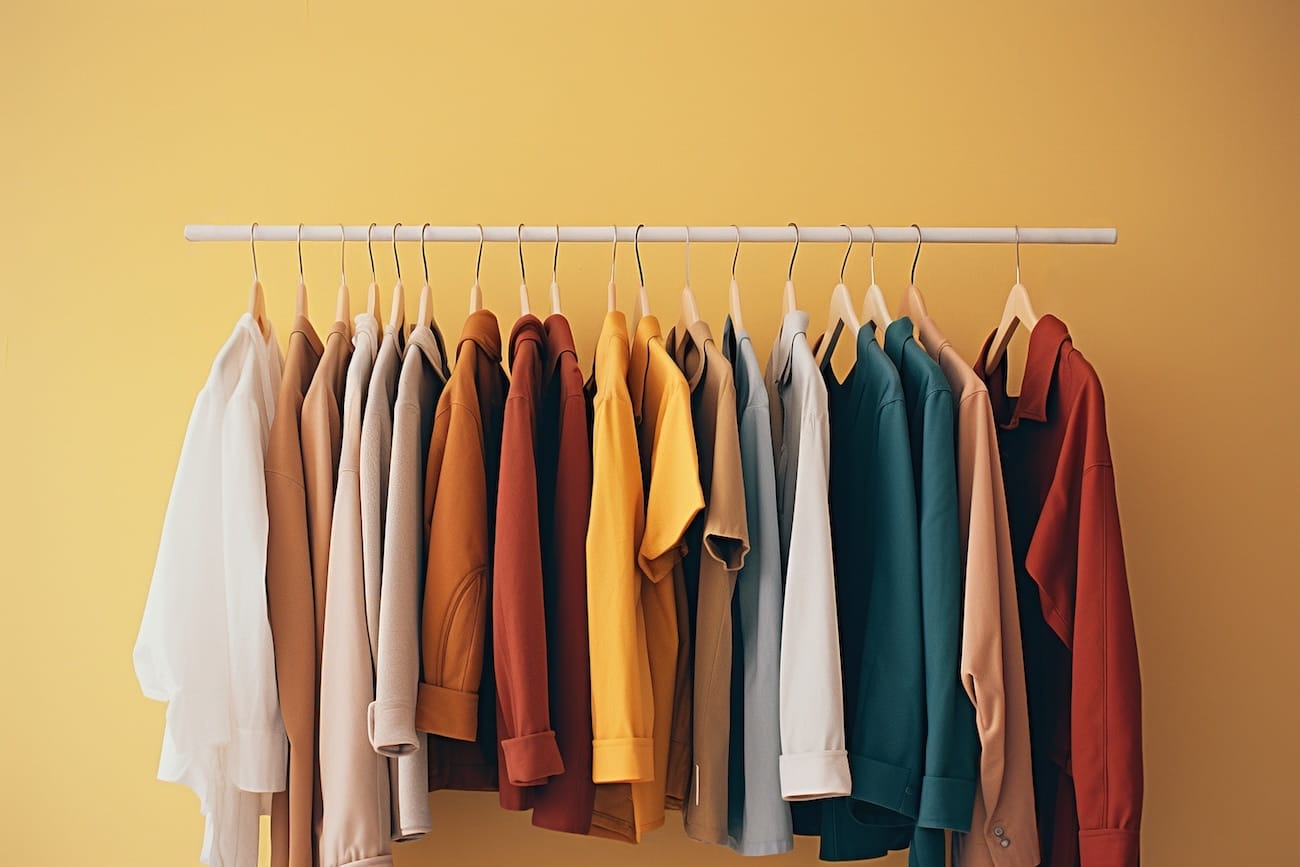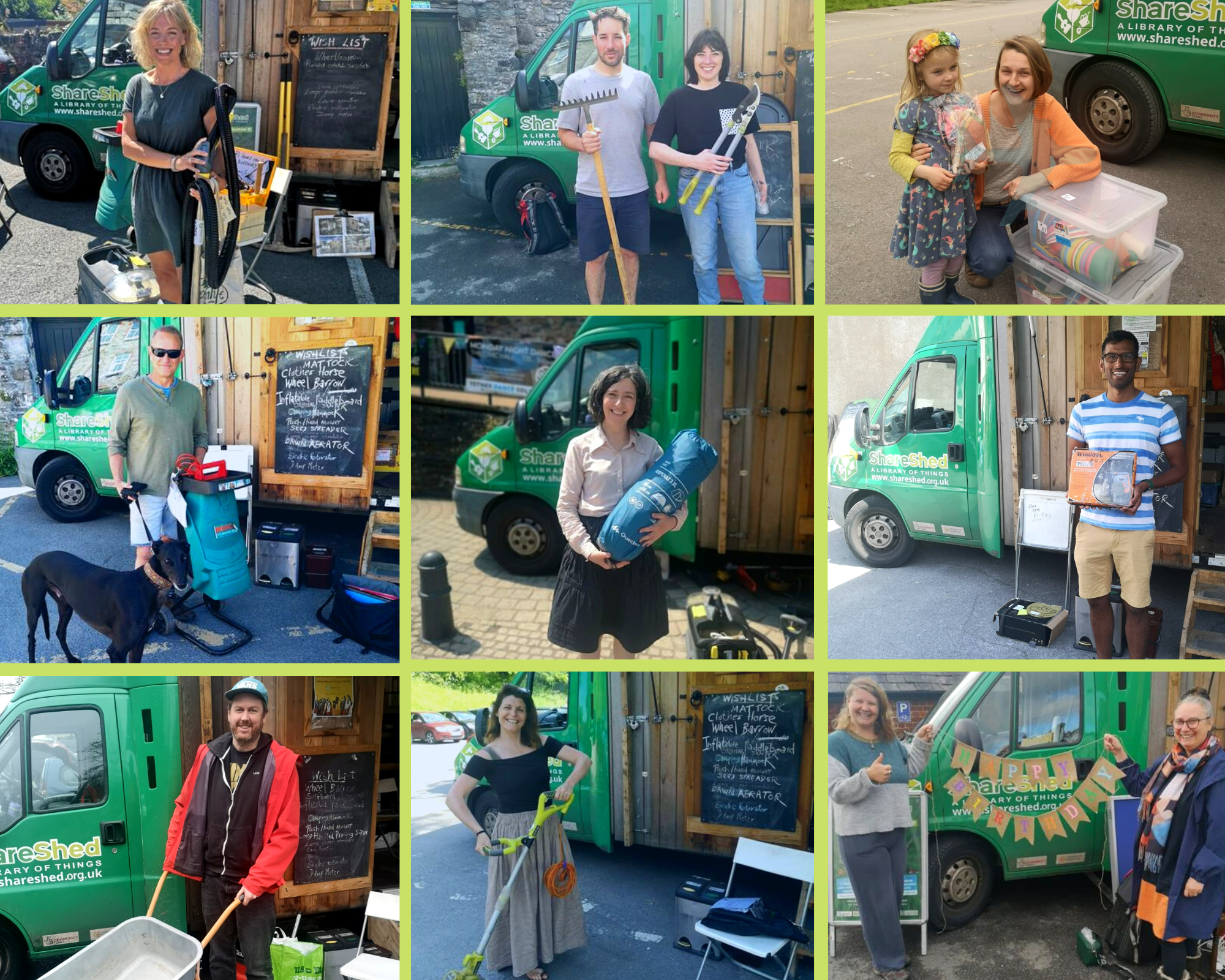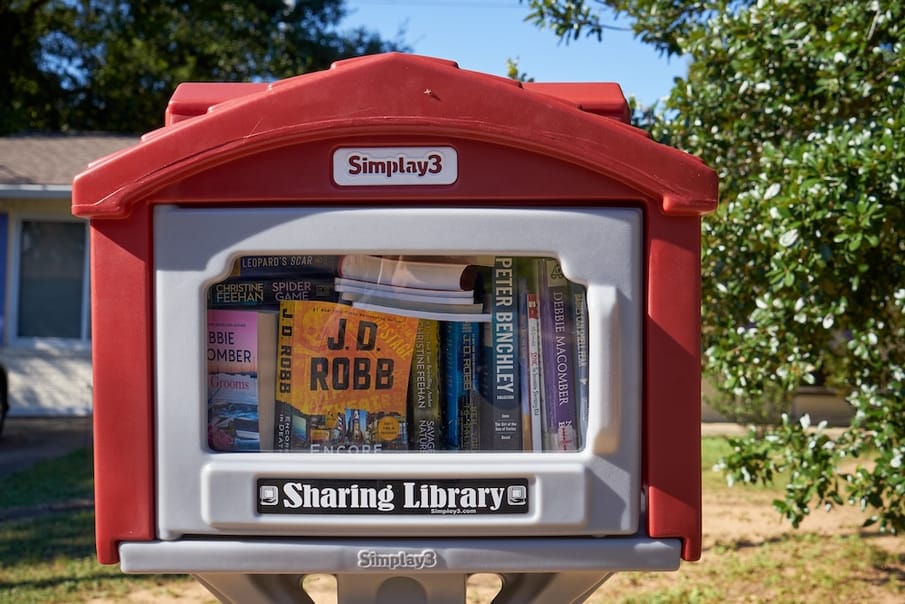Discover what they have to offer and how you can find one near you
One thing that most of us will agree on is that there is a lot of ‘stuff’ in the world – way more than enough to go around. And with environmental and economic concerns on our minds, wouldn’t it make sense if we could share things between us a bit more?
This is the fundamental idea behind sharing libraries (also sometimes called ‘libraries of things’) – initiatives that are popping up around the country. We’re not talking about regular libraries here, where you can borrow books, magazines, newspapers, and more. Sharing libraries offer other useful items to local people, who are able to borrow and return them, free of charge or for a very low fee.
In Oxfordshire, the Oxford Maternity Clothes Library allows expectant mothers to try on and borrow maternity wear – removing one more expense from a time when the bills can add up. The Warwick Toy Library offers the same model but with toys – and locals can even browse toy catalogues online and reserve their picks. The Tool Library in Wolverhampton offers gardening equipment such as lawnmowers, spades, and rakes; domestic power tools; and all kinds of other DIY equipment like screwdrivers, pliers, and chisels. The Share Shed in Devon has more than 350 useful items up for grabs. And nappy libraries can commonly be found all over the country, offering parents the opportunity to try out reusable cloth nappies without the cost burden of investing in their own sets first.

These are just a tiny handful of the examples of the kinds of schemes in action at the moment, and the same models are being seen popping up across the country. Sometimes run by local councils, other times by independent organisations, these libraries of things are making a huge difference.
A fight on three fronts
Beyond being a handy way to get hold of free or low-cost stuff, sharing libraries have the potential to make a big difference on three fronts.
-
Environmental benefits. These collections tend to focus on common things that we all need, but which we don’t use constantly – the sort of things that can clutter a home and are left unused the majority of time. This saves on the environmental impact of producing the items, by reducing the demand for new things. What’s more, the items are stored locally, which brings down transportation emissions that would usually be involved in distribution and delivery.
-
Greater access. At the core of sharing libraries is greater access. For families, financial barriers can mean that things like toys or comfortable clothing can be knocked down the priorities list. But these libraries create a sense of equality in the community, meaning that individuals don’t need to go without.
-
A sense of community. It can be easy to feel isolated in this modern world, but sharing libraries are all about coming together to support one another, and to share resources between groups of people. They can also become opportunities for socialising, with volunteer roles available, and some places also hosting repair workshops for exchanging skills.
How do I find out about sharing libraries near me?
There are several ways to find out where your closest sharing library is. The first is to head to the website Ethical Consumer (ethicalconsumer.org), which highlights libraries across the UK. For those who live in London, Library of Things (libraryofthings.co.uk) runs in 19 locations across the capital.
If you’re looking to set up your own library of things, you can download a free toolkit on the website Share Shed.

(Share Shed is a mobile library of things. Head to shareshed.org.uk to find out more. Image curtsey of Share Shed)
But if your area isn’t listed by those sites, don’t give up hope. You can also search on your local council website to see if it is running a sharing scheme or equivalent, or you could head to your local books library and ask if they are aware of a sharing library in the area.
Local Facebook groups are great spaces to find out what’s happening around you, so you can also put the feelers out in these online spaces to see if anyone can point you in the right direction. Some communities will set up smaller, informal versions of these libraries – for example, street WhatsApp groups where people ask if anyone on the road has the thing they’re looking to borrow, or local pass-it-on groups.
And, if all else fails, the UK Sharing Libraries Network hosts online events for people to learn more about sharing libraries and how to set one up for themselves.
Sharing is caring
In a world where we’re encouraged to continue to collect more and more stuff, sharing libraries are taking a stand for the environment and for our personal finances. So, next time you find yourself in need of something handy, consider looking for a way to borrow it – it’ll be easy on the planet, easy on your pocket, and great for the community.
Remember, your local council serves you, and so if you love the idea of sharing libraries, you can reach out to your local councillor to see whether this is something that could be introduced in your area. For helpful information on making your case, head to: participate.libraryofthings.co.uk/licensing-councils


Comments